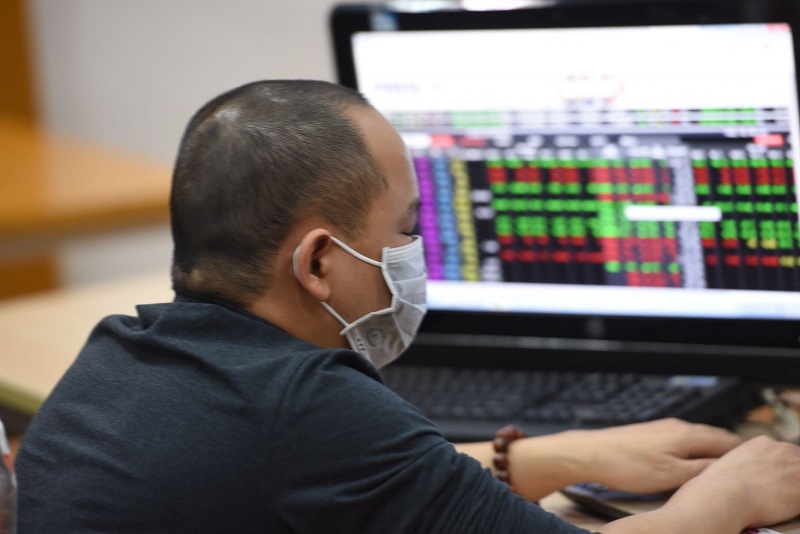A drop in US bond yields will boost the Vietnamese stock market
According to Mr. Tran Duc Anh, Director of Macro and Investment Strategy at KB Vietnam Securities Company, a fall in interest rates in the United States will benefit the Vietnamese stock market.

Impact of the US Government Bond Yield
When we examine the link between the stock market (SM) and the 10-year US government bond yield, we can see that these two variables move in different ways at different times. In other words, when bond rates rise, the stock market in the United States falls, and vice versa.
Over the last 2-3 months, the economy has weakened, inflation has risen sharply, and the US Federal Reserve (Fed) has been forced to tighten monetary policy, resulting in an increase in the yield on US government bonds, while listed companies' business activities have weakened, causing the stock market to adjust.
In principle, rising government bond rates make it more difficult for firms to function since their borrowing costs grow. The yield on US government bonds is used as a benchmark interest rate for many loans to US firms, as well as for pricing financial assets in the stock market, where the discount rate also takes this element into account.
As a result, investors are presently focused on monetary policy and the yield on US government bonds. A detailed examination of US government bonds provides for an assessment of the future trajectory of the US stock market.
Looking at the market, the yield on US government bonds has increased sharply by roughly 5%, and the US stock market has also adjusted. The following are some of the reasons behind this: First, the Fed has raised interest rates significantly from the end of the first quarter of 2022 to now, bringing the Fed Funds Rate to its highest level in decades. This interest rate is inversely related to the yield on US government bonds. Furthermore, the Fed has begun to reduce the size of its balance sheet from March 2022.
The Fed sold assets such as US government bonds and other financial assets to lower the size of its balance sheet as part of a quantitative tightening package. Following the law of supply and demand, this has resulted in a huge rise in the supply of US government bonds in the secondary market, leading in a reduction in bond prices and an upward trend in bond yields.
The US government hit the debt ceiling in May 2023, but later enacted a resolution to increase it. To counter the budget deficit, the US Treasury issued a substantial number of government bonds, resulting in a high supply of bonds on the market. Bond prices fell and bond rates rose as supply grew from these two sources.
China reduced its holdings of US Treasury bonds by 40% in an effort to fix the Chinese yuan's exchange rate. Other Asian countries, like Japan and South Korea, have recently sold US government bonds, in addition to China.
As a result, supply from the Fed, the US Treasury, and several Asian countries has expanded dramatically, leading the yield on US government bonds to climb.
Impact on Vietnam
In terms of the influence on Vietnam, the yield on US government bonds symbolizes the US economy's interest rate landscape. When this yield rises, other interest rates rise as well, forcing capital to flow back to the US and out of emerging nations such as Vietnam.
The currency rate is another concern. When the yield on US government bonds rises, so does the US dollar, represented by DXY. When the currency rate becomes under pressure, the State Bank of Vietnam (SBV) is anticipated to sell foreign exchange reserves or build VND reserves by hiking interest rates, causing the market to adapt.

Looking ahead, it can be observed that core inflation in the United States has exhibited a consistent falling tendency and is presently at 4%, while total inflation is expected to fall to 3.2%. The market views this as a decrease that will give the Fed confidence in the existing interest rate and prevent it from raising rates further. At the same time, the market is expecting the Fed to decrease interest rates sooner than originally anticipated.
Furthermore, the labor market is cooling. The unemployment rate fell to roughly 3.3% in the first and second quarters of 2023 before rising to 3.9%. There have been other situations in the past where the unemployment rate climbed swiftly after it began to rise, making it impossible to manage. As a result, even a jump from 3.3% to 3.9% is a signal that the Fed is paying attention to when regulating monetary policy. When the unemployment rate is high, it indicates that the US economy may be approaching a recession, and interest rate reduction should be implemented as soon as possible.
There is a good chance that the yield on US government bonds will fall in the near future, and analysts anticipate that the US dollar will fall as well. This is good news for emerging stock markets, including Vietnam. Exchange rate pressures and foreign capital outflows are expected to be much lower than they were 1-2 months ago.
The State Bank of Vietnam (SBV) of Vietnam is constantly eager to assist economic growth by keeping interest rates as low as feasible. Nonetheless, the SBV's principal purpose is not to promote economic development at any costs, but to stabilize the macroeconomy by managing inflation and exchange rates.
In the future, if inflation is properly controlled and exchange rate pressures are relieved, we can fully anticipate the SBV to undertake more supportive and open policies without overly worrying about macroeconomic stability. At such time, both deposit and lending interest rates tend to fall, and credit expansion accelerates, paving the way for the Vietnam Stock Exchange to boom. This is also a component that causes huge market expectations at the moment.










